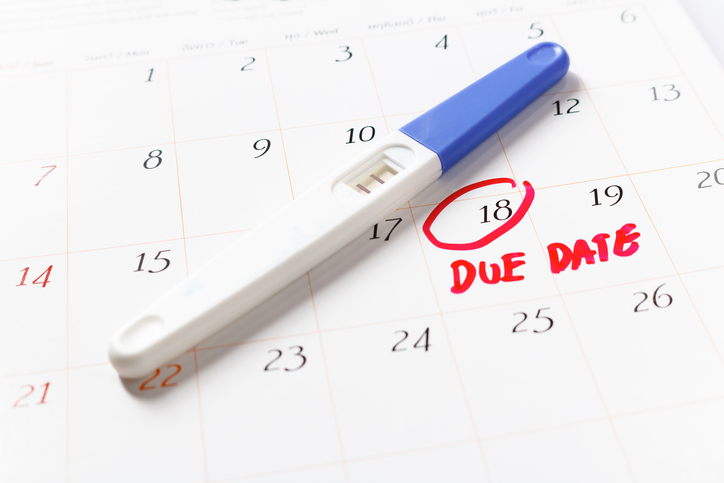
In July 2014, at six and a half months pregnant, Dyani Lewis set out to uncover why small mammals like quolls, bandicoots, and wallabies were rapidly disappearing in northern Australia. It was a dream assignment and she was given a budget to travel, so Lewis took an overnight flight to Darwin, Australia, and drove another three hours to meet a group of ecologists in the remote Kakadu National Park. But Lewis had overlooked one key factor that would impact her reporting experience: her own pregnancy.
Lying in her tent the first night, Lewis recalls holding her swollen legs in the air and worrying. She had become more dehydrated and exhausted than she normally would have. And she feared that would somehow harm her baby. “It just kept on hitting me that I probably didn’t really prepare for this as much as I should have,” she says. Lewis decided to stay and complete the assignment, and had a healthy pregnancy. But the experience highlighted to her how difficult it can be to plan for reporting trips and unpredictable health while pregnant.
Great assignments and steady pay can be a challenge for freelance journalists even during the best of times. Adding in the complications of pregnancy, maternity leave, and childcare can leave reporters feeling even more vulnerable. “When editors are looking for a writer, you want to be high on their list, but I was afraid of them finding out I was having a baby,” says Littleton, Colorado-based freelancer Amanda Keener. “What if that pushed me down the list?”
A growing proportion of science journalists are freelancers, and many have these concerns when building a family. In 2018, full-time freelancers made up 45 percent of the National Association of Science Writers members. Yet regulations regarding parental leave benefits for the self-employed are almost absent in the United States compared to other countries. At a federal level, the U.S. Family and Medical Leave Act of 1993 allows individuals 12 weeks of unpaid leave a year, but this only applies if they are employed by companies with 50 more employees. (Lewis, who is an independent freelancer based in Melbourne, received 18 weeks of paid parental leave from the Australian government.)
Freelancers in many places need to get creative if they want to take time off to care for a new child in the family. Often, this means that freelance reporters leverage the one advantage they have: flexible schedules. Depending on their relationships with editors and the length of parental leave they desire, freelancers can adapt their workload, how much money they sock away, when they disclose a pregnancy to others, and what kind of childcare solutions fit their family needs.
Planning for Baby
For most freelancers, planning parental leave means frontloading a lot of their work. New York-based freelancer Sandeep Ravindran says he took on more assignments when his wife became pregnant in 2016. By working longer hours and writing more short-turnaround news stories, he was able to build up a small financial buffer before his daughter was born. This helped tide him over during the eight weeks of paternity leave he gave himself.
Building a small nest egg is easier said than done though. Workdays can be interrupted by prenatal checks every week or so. Some women and LGBTQ couples may need to make regular trips to fertility clinics even before they get pregnant. And adoptive parents often have to handle paperwork and social worker visits. “Most adoption is not on a predictable time schedule,” says Pittsburgh-based freelancer Meg St-Esprit. That means parents may not have time to save as much as they like. The best way to work around that is to keep editors abreast of your situation, which St-Esprit did by being frank about assignment expectations and potential time off as soon as she started considering adopting her youngest child. “I wasn’t sure that it would happen, but I let them know in July that we potentially would have a baby in our family in August,” she says.
Other situations can also disrupt carefully laid plans, such as complicated pregnancies that require bed rest, or result in an early delivery or in miscarriage. Keener found out her second pregnancy was no longer viable a week through a routine ultrasound a week before a big feature was due. It was a “missed miscarriage” because she hadn’t had any symptoms, such as bleeding or cramps. It was daunting telling the editor she suddenly needed time off, Keener recalls, but “editors are generally very understanding, and I knew that if my working relationship with this editor got affected, I had the flexibility to find other work when I was ready,” she says. In her case, Keener and her editor decided on a new deadline together, which was three and a half weeks after the original, and gave her the chance to rest and recover.
Memory and attention issues that sometimes arise in a pregnancy can sidetrack writers too. “I would have words leave me, and as a writer, nothing is more awful than not having a word,” says Tara Haelle, who frequently writes for Forbes, Scientific American, Everyday Health and other outlets. What some call “pregnancy brain” may be explained by surging hormones and sleep deprivation. The evidence is mixed, though. A 2010 study, for example, showed that pregnant women experienced difficulty remembering words, but did not experience any impairments in other types of memory, such as recognition or working memory.
It’s OK if you need to focus on your own health in addition to adjusting to your growing family, Keener says. Setting realistic expectations while remaining flexible is what helps freelancers gracefully transition into parenthood.
Making Adjustments
After welcoming a new child into the family, freelancers can ease back into one assignment at a time, compared to staff journalists who have to dive back in full force. Having a few pre-reported pitches that you can freshen up and send to editors helps when you are ready to start work again, says Jyoti Madhusoodanan, whose work has appeared in NYT Parenting, Nature, and Knowable Magazine, among other outlets. Pieces with long turnaround times and evergreen pitches like Q&As and essays, or stories that require minimal reporting also allow freelance parents to work within their own schedules and their childcare situations.
Parents may need to squeeze work into set chunks of time, such as when their infant is sleeping, has a nanny, or is in daycare. There is little room to procrastinate with a baby. “I used to rely on my evenings and late nights and weekends as my buffer for meeting deadlines. Now I have to be much more efficient,” Ravindran says.
It can help to have multiple support networks, in case of unexpected breakdowns in childcare, baby ear infections or more serious illnesses. Caretakers can fall ill too, Madhusoodanan says. In cases where freelancers don’t have backup, they should just be transparent with sources and with editors. Sometimes sources are able to reschedule calls, or don’t mind hearing a wailing toddler in the background because they understand the situation. And sometimes editors have wiggle room for deadlines too. “Just like we keep saying ‘Ask for more money,’ I think we should all ask for more time too,” Madhusoodanan says.
Building a family doesn’t have to sideline freelance journalists’ careers, Haelle says. “In my case, having children kind of launched my career,” she says. Haelle’s experiences with her children gave her new insights and authority on her beat, which includes writing about child and maternal health, as well as vaccines and infectious disease. When she had her second child, Haelle decided she did not even want any time off. Instead, she plowed forward with co-writing her book The Informed Parent: A Science-Based Resource for Your Child’s First Four Years with the support of her family and a nanny.
Ultimately, freelancers have the advantage of being able to tailor the length of parental leave and type of childcare to fit their needs. Lewis advises that freelancers who want to take more than a few months off to spend time with their child should do so without worrying about losing relationships with editors. “In reality, you are as good as your next pitch,” she says. “And if your next pitch is good, then you can land a commission.”

Knvul Sheikh is a freelance writer and a TON fellow sponsored by the Burroughs Wellcome Fund. Her work has appeared in The Atlantic, Audubon, National Geographic, Popular Science, Scholastic, Scientific American, and more. Knvul has lived in the foothills of the Himalayas in Pakistan, swum in the tropical waters of Singapore, and backpacked across the South Island of New Zealand. She is currently based in New York City and can be found on Twitter @KnvulS.


